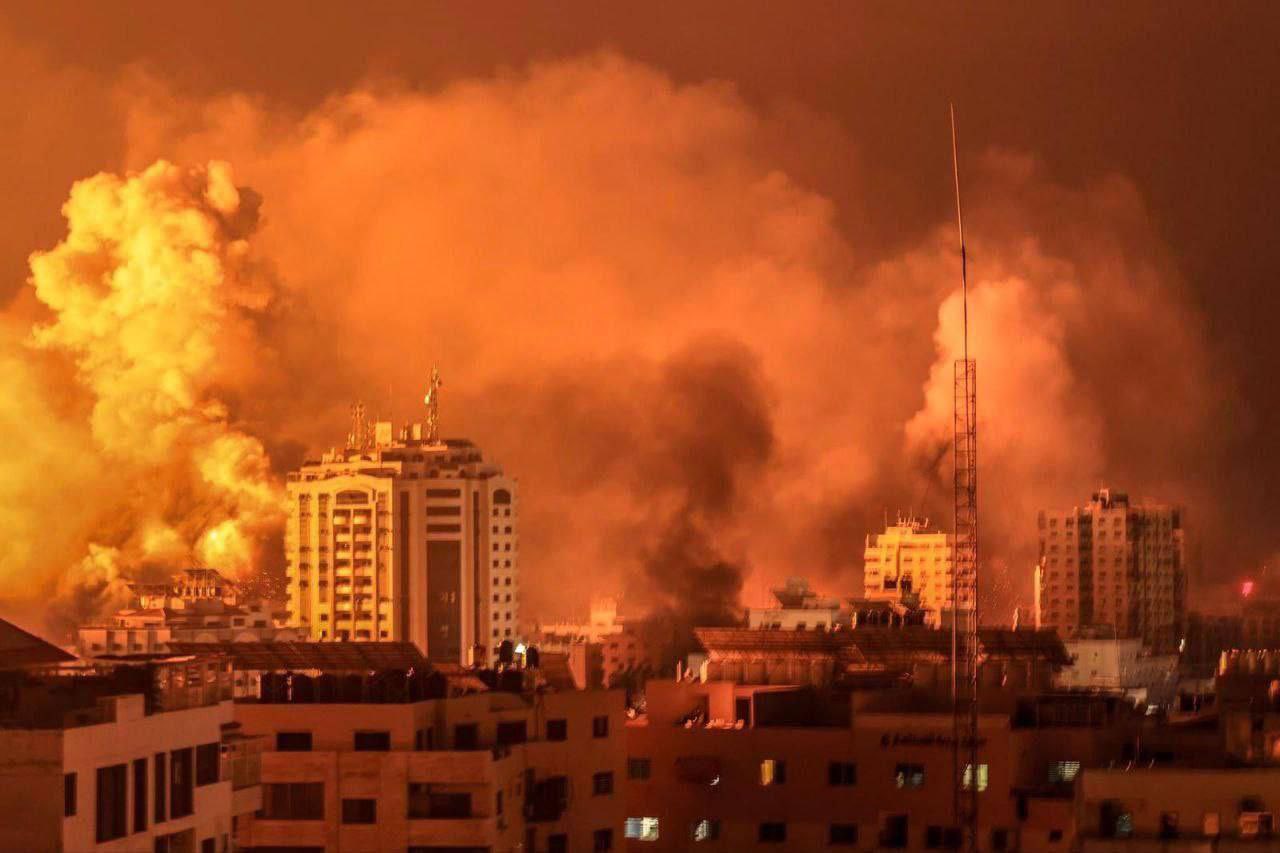The UN Security Council has been unable to take action regarding the Israel war on Gaza, despite the worsening humanitarian crisis in the besieged enclave.
Oxfam warned that starvation is being used a “weapon of war” in the besieged Gaza Strip, where Israel has waged a relentless war on the enclave that has claimed the lives of thousands of Palestinians in just over two weeks.
The humanitarian organisation called on Israel to allow essential supplies to enter the territory, emphasising the dire consequences of the current situation.
Tel Aviv’s decision to impose a “complete siege” combined with its non-stop bombardment has led to a devastating death toll of over 6,600 Palestinians, including at least 2,704 Palestinian children.
The United Nations has issued dire warnings of a humanitarian catastrophe in Gaza, pleading for more aid trucks to enter the territory.
Fewer than 70 trucks have been granted the green light from Israel to cross over from Egypt to Gaza. However none of the trucks contained fuel shipments and the limited aid has been described by humanitarian agencies as a mere “a drop in the ocean” of the needs of Gaza’s population.
Oxfam’s statement on Wednesday revealed only “two percent of food that would have been delivered has entered Gaza since the total siege.”
The British-founded charitable organisation estimates that approximately 104 trucks per day are urgently needed to provide sustenance to the desperate population.
“The situation is nothing short of horrific – where is humanity? Millions of civilians are being collectively punished in full view of the world, there can be no justification for using starvation as a weapon of war. World leaders cannot continue to sit back and watch, they have an obligation to act and to act now,” said Sally Abi Khalil, Oxfam’s Regional Middle East Director.
“Every day the situation worsens. Children are experiencing severe trauma from the constant bombardment, their drinking water is polluted or rationed and soon families may not be able to feed them too.”
“How much more are Gazans expected to endure?” she added.
Citing international humanitarian law, which unequivocally prohibits starvation as a method of warfare, Oxfam asserted that the current situation in Gaza blatantly violates this principle and condemned it in the strongest terms.
The UNSC on Wednesday was set to consider proposals from the US, which sought support for short pauses in the war to facilitate aid entry, as well as a seperate Russian resolution advocating for a broader ceasefire.
However, the UN Security Council was unable to take action regarding the Israel war on Gaza, despite the worsening humanitarian crisis in the besieged enclave.
On Wednesday, Russia and China vetoed a resolution put forward by the US, pushing for more than mere humanitarian pause.
The US resolution had aimed to secure a humanitarian pause, allowing for the delivery of humanitarian aid, protecting civilians, and halting the arming of Hamas and other resistance movements in Gaza.
Washington made a rare move by proposing Security Council intervention. However, diplomats pointed out that a humanitarian pause is different from a ceasefire, which was endorsed by UN Secretary-General Antonio Guterres.
“The draft does not reflect the world’s strongest calls for a ceasefire, an end to the fighting, and it does not help resolve the issue,” China’s UN Ambassador Zhang Jun told the council after the vote.
“At this moment, ceasefire is not just a diplomatic term. It means the life and death of many civilians.”
Following the rejection of the US resolution, the Security Council conducted a vote on a proposal drafted by Russia that urged a humanitarian ceasefire and the withdrawal of Israel’s directive for Gaza civilians to move south in preparation for a ground offensive.
This marked Russia’s second attempt to pass a resolution, but it garnered only four votes. In its initial attempt on 16 October, Moscow had the support of five council members only.
Oxfam further called on the UN Security Council and member states to prevent the situation from deteriorating any further and demanded an immediate ceasefire.
Such an action is crucial to ensure that all necessary supplies, including food, fuel, water, and medical aid, reach those in desperate need, it said.
The veto power of the west
The Security Council comprises 15 nations, divided into two categories. Ten members are non-permanent, chosen by the UN General Assembly and holding council seats for a two-year term.
The remaining five members, including the US, Russia, China, France, and the UK, are permanent and wield significant authority.
In the event of a veto by any of the permanent members, a resolution will be rejected, regardless of the number of supporting votes it receives. This grants each permanent member the power to block any Security Council action.
The US has long used its veto power to keep wars going, The Intercept said.
Last Wednesday, the US alone casted a “no” vote against a proposed UN Security Council resolution, authored by Brazil, which called for “humanitarian pauses” amidst Israel’s deadly airstrikes on Gaza.
Twelve nations supported the resolution, including countries like France and the United Arab Emirates. Russia and the UK opted for abstention.
However, in line with the Security Council’s regulations, the solitary “no” vote from the United States resulted in the resolution’s failure.
Human Rights Watch criticised the American move, saying: “Once again the US cynically used their veto to prevent the UN Security Council from acting on Israel and Palestine at a time of unprecedented carnage.”
The first US veto to protect Israel took place in 1972. America has since employed its veto authority to shut down approximately 50 resolutions that criticised Israel.







